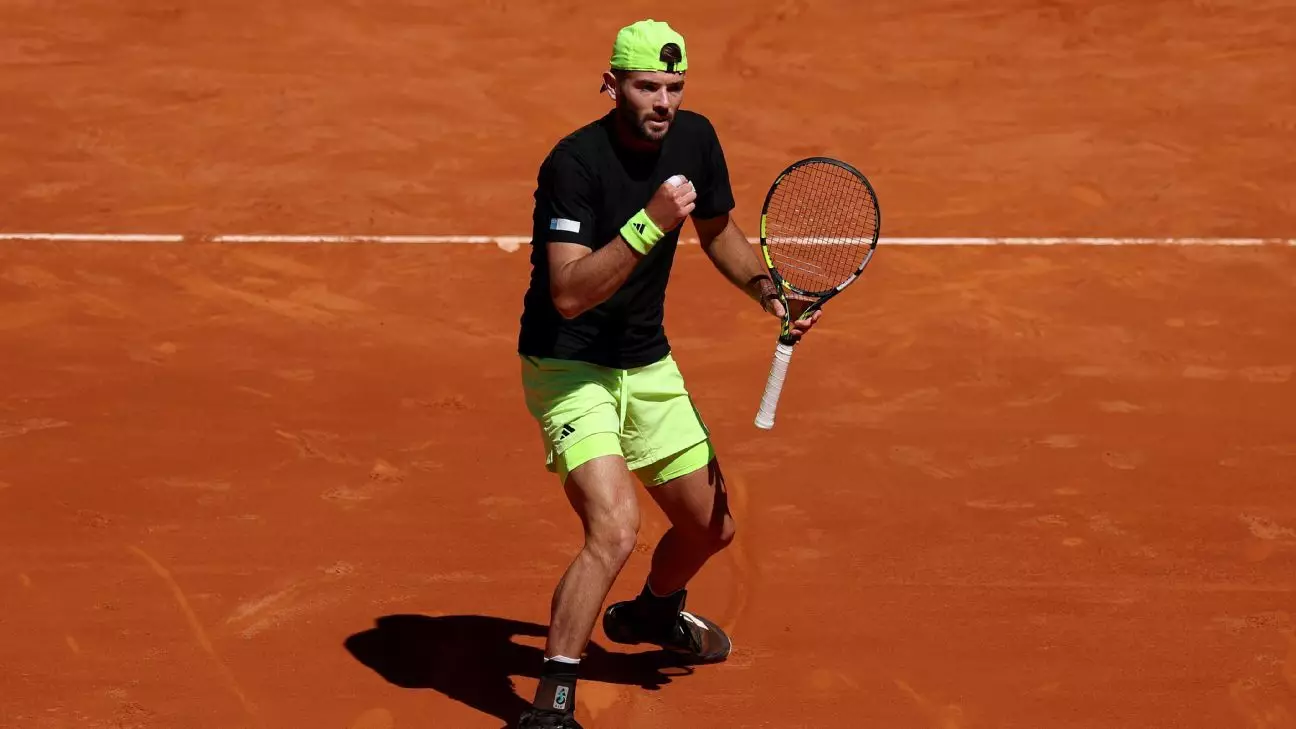The Madrid Open, one of tennis’s most prestigious tournaments, faced an unforeseen hurdle on Monday when a significant power outage struck both Spain and Portugal. As players battled for supremacy on the court, the lights suddenly went out, leaving the tournament in limbo. Such an incident not only interferes with the matches but also highlights the vulnerabilities of hosting major sporting events in a world increasingly reliant on technology.
At approximately 12:34 p.m. local time, amidst thrilling matches featuring talented players, the power outage led to an immediate suspension of play. The affected matches included a singles clash between Grigor Dimitrov and Jacob Fearnley, with Dimitrov holding a tenuous lead of 6-4, 5-4 at that moment. Also impacted was a match involving Matteo Arnaldi and Damir Dzumhur, where Arnaldi led 6-3, 3-2. The tension of the tournament’s atmosphere was abruptly replaced by uncertainty as fans and players alike awaited updates.
The Role of Technology in Modern Tennis
This incident magnifies the intricate dependencies that modern sports have on technology. The Madrid Open utilizes advanced electronic line-calling systems critical for fair play and accurate match outcomes. With the power failure rendering these systems inoperative, the integrity of the next moves would rely heavily on traditional methods—an unsettling prospect for both players and spectators. The dangling spider cam above the court serves as a stark visual reminder of how fragile event productions can be, and how quickly the glamour of organized sports can dim.
Moreover, the response from players varied; while some were left in darkened locker rooms contemplating their next moves, others took it in stride. Coco Gauff’s lighthearted Instagram post about her experience in an emergency-lit locker room contrasts sharply with the seriousness of the disruption, showcasing the resilience that athletes must cultivate amid unpredictable circumstances.
Beyond the Match: The Bigger Picture
The power outage’s repercussions extend beyond the tournament’s confines, affecting a vast region that encompasses over 50 million inhabitants. The Spanish generator company RedElectrica reported that the Iberian Peninsula was hit hard, leading to a widespread blackout that left many without electricity. This incident raises significant questions about infrastructure resilience and the impact of such outages on public gatherings and events.
As the world emerges from global challenges, the intersection between technology and event management remains critical. A competitive environment like the Madrid Open not only showcases exceptional talent but also reveals the vulnerabilities at play in a highly commercialised sporting landscape. Observers must reflect on how prepared such tournaments are against unforeseen interruptions. The Madrid Open serves as a microcosm for broader societal challenges; when technology fails, people must come together to find solutions and carry on—even if that means navigating through the dark.


Leave a Reply